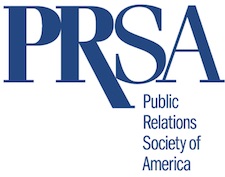Stonewalling in Westhampton Beach has caused open revolt among residents. Similar behavior at PR Society of America has stunted its growth: 2015 revenues are what they were in 2006.
|
|
Two library board meetings at which the two sides traded insults and recesses had to be calledhave failed to budge the board on switching to elected status. Oddly, the Southampton Press covered the first meeting but not the second, although reporter Erin McKinley was present at both.
|
|
The McKinley story attracted 19 emails from readers, 17 of them in support of rejecting the library budget May 17. SH Press has not mentioned in any story the quest of citizens to reject the library budget.
At PRSA, publication of the 2015 audit shows revenues of $11,600,526 which is 0.l5% more than revenues of $11,426,867 in 2006.
Revenues have gone up less than one percent in nine years despite a $30 boost in dues five years ago.
There are more than 250,000 people in PR jobs according to the Dept. of Labor. Jobs have been increasing, particularly on the counselor side, as measured by the O’Dwyer rankings of PR firms. PRSA membership has been stable at 22,000 for several years.
Fifteen of the 25 largest PR firms in the rankings had double-digit gains in 2015.
The PR industry is passing by the PR Society. Top executives are in the Arthur W. Page Society and (PR) Seminar and not the Society. Financial PR executives are in the National Investor Relations Institute. Instead of a major corporate or agency executive, the chair of the Society in 2017 will be Jane Dvorak, a solo practitioner in Colorado.
CEO of the Society is Joseph Truncale, a veteran of the printing/mailing industries who joined in early 2015 and has yet to make a public appearance. The inference is that no top PR executive could be found to fill that post. Making the non-PR paid staffer “CEO” two years ago was a bizarre move.
Record Low Spending on Ethics
What also caught our eye in the audit was the record low spend of $945 on “ethics” although the Society Code says “ethical behavior” is the prime duty of members.
This item has been in the low thousands but never below $1,000. The Society’s spending for “ethics” includes $704 for “telephone,” $233 for printing, and $8 for postage/shipping, No staff time at all was spent on “ethics.”
 There was a period in the 1980s and early 1990s when $20,000 and more was spent annually on ethics as investigations were made of member complaints. When the Society decided to end ethical enforcement in 1999 (after a member charged the board with five ethical violations when it declared a press boycott), approximately $200,000 was spent to create a new, toothless code.
There was a period in the 1980s and early 1990s when $20,000 and more was spent annually on ethics as investigations were made of member complaints. When the Society decided to end ethical enforcement in 1999 (after a member charged the board with five ethical violations when it declared a press boycott), approximately $200,000 was spent to create a new, toothless code.
Removal of enforcement of the Code went against the wishes of the members, Prof. Kathy Fitzpatrick then at Quinnipiac University wrote in 2002.
We consider the Society’s policy of blocking reporters as members and blocking them from seeing its financial reports to be unethical behavior. However, there’s no ethics committee to handle such complaints. Thankfully, not all members believe that the annual audit should not be accessed by reporters.
Staff Pay, Pensions: $6.2 Million
Another item that caught our eye was the record payroll of $5,766,542, up 8.3% from $5,321,535 in 2014. It is 49.7% of revenues when 2003 payroll of $3,905,950 was 43% of revenues of $9,065,643. To the 2015 figure must be added $417,398 in pension expenses for a total of $6,283,940. Since there are about 55 staffers, that works out to an average of $114,940 per staffer. They also get medical insurance and other benefits.
Such pay levels are far above what most Society members earn especially now since many are in junior and mid-level posts.
The audit misleads as to the net worth of the Society since dues are booked as cash when almost no other trade association does that. Income is supposed to be booked as earned throughout the year according to generally accepted accounting principles.
Therefore, the $5,686,361 in “net assets” should be cut by $2.6 million which is half of the dues income of $5,221,843. Real net assets are about $3M.
The above are not our biggest beefs about the Society. The big one is the negligent treatment of New York and New York members. There has only been one national conference in New York since 1992 and none are planned in the future. It should be in the city every year because the 2004 conference in New York was the best attended and most profitable ever. New York has about 20 times the PR, advertising, media and PR supplier businesses as any other town.
Also, it’s the No. 1 tourist attraction in the U.S., more than 50 million tourists visiting each year
The Society has been captured by arch-conservative believers in accreditation from the South and West who show no signs of relaxing their grip despite evidence membership is stagnant.
Maurice Levy, CEO of Publicis, whose employee Mark McClennan is chair but not CEO of the Society, should step into this mess. It is a blot on Publicis which is celebrating its 90th anniversary this year.
Also complicit is the New York chapter leadership which accepts neglectful treatment by national year after year. Chapter membership of about 700 is what it was 15 years ago while New York Women in Communications is 2,000+. Are chapter leaders getting some kind of rake-off that we don’t know about? Counselor Academy leaders have said that new biz leads flood into national h.q. each month but we never see any advertised on the Society website. Who gets them?!
Governance “Gamesmanship” by PRSA, WHB
Both the PR Society and WHB officials practice governance “gamesmanship” in dealing with their constituents—limiting access to themselves, limiting information, and using dominance tactics at meetings.
Society leaders and staff position themselves on a stage at the annual Assembly while delegates are below them in the audience.
When allowed to speak, which is usually after nearly a dozen speeches by officials and staff, delegates do so from mikes on the floor of the Assembly and are ordered to “Address the board” if they start speaking to fellow delegates. Lawyers on stage are ready to snap at any delegate who does so. Lawyers also warn delegates never, ever to tell the board what to do.
The list of Assembly delegates, which once was published, went private many years ago, accessible now only to delegates themselves.
Key information is withheld. The 2006 move by the Central Michigan chapter to have the Society adopt governance practices of the American Medical Assn. and American Bar Assn., shifting power from the board to the Assembly, never made any Society publications or the Society website.
Members who organized the “Committee for a Democratic PRSA” in 2010 were denied use of the membership email list and their group was never mentioned in any Society publication or on the Society website. The attempt at reform failed miserably.
WHB Trustees Give Selves Edge
 WHB trustees are only available to the public at monthly meetings in the trustee room in WHB headquarters. Residents can only speak after sometimes dozens of procedural items are taken care of such as renewal of licenses.
WHB trustees are only available to the public at monthly meetings in the trustee room in WHB headquarters. Residents can only speak after sometimes dozens of procedural items are taken care of such as renewal of licenses.
Trustee rules are that residents can speak for only five minutes and must address the board which is seated on a platform that is higher than the rest of the room. Should the resident look at the people in the room or the video camera that is recording the meeting, the lawyer for the trustees will order the resident to “address the board.”
New York State’s “Open Meetings” law only requires board members to listen to citizens at a meeting. They are not required to respond. Library board meetings are neither audiotaped or videotaped.
A “town hall” meeting would put the citizens in the “driver’s seat.” WHB trustees have never called such a meeting.
After about a year and a half of trying, we were finally able to have a phone conversation with Mayor Moore on May 13. She reiterated the board’s position that the monthly meeting is for conduct of the board’s business and cannot be used by a citizen to state his or her views unless such views are relevant to the board.
We spoke for ten minutes at two of the meeting last year and were cut off after five minutes at the next three. The board does not want to hear what we have to say about the proposed eruv for WHB and other subjects.
NYT Reporter Writing about Eruv
A New York Times reporter has been assigned to write about the eruv proposed for WHB and has been calling on interested parties including those at Jewish People for the Betterment of WHB. This would be the first NYT coverage of the topic since religion reporter Sharon Otterman of NYT wrote about it on Feb. 4, 2013.
The eruv, as described by Otterman, would consist of about 60 ten to 15-foot long, five-eighths-of-an-inch wide PVC strips attached to utility poles and painted to blend in with them. They would be difficult to see and would be shorter than the poles themselves, Robert Sugarman, lawyer for the East End Eruv Assn., told Otterman. The markers would go on 48 poles. There are no such markers on any WHB poles according to a survey by SH Press published March 20, 2015.
She quoted Conrad Teller, mayor in 2013, as saying that 90-95% of residents don’t want an eruv.
We have asked Mayor Moore to call some “town halls” where the public would be in the driver’s seat and not the board. Residents would be able to address each other without being told, “Address the board.” Dominance tactics of trustees would not be allowed.
Trustees would sit at the same level as the residents and not look down upon them. A moderator would be picked by the residents who would also have their own lawyer on hand.
That would be democracy in action. Officials would finally be answerable to the citizens. The meetings would be in the high school or one of the large rooms at the library and not in the small room where trustees hold their sessions.




 Husch Blackwell Strategies has added FleishmanHillard alum Michael Slatin as a principal in its public affairs group.
Husch Blackwell Strategies has added FleishmanHillard alum Michael Slatin as a principal in its public affairs group. Rory Cooper, a veteran Republican operative and policy specialist, has joined Teneo’s Washington office as senior managing director in its strategy & communications practice.
Rory Cooper, a veteran Republican operative and policy specialist, has joined Teneo’s Washington office as senior managing director in its strategy & communications practice. Brian Fallon, who served as national press secretary for Hillary Clinton’s 2016 presidential run, is signing on next month as Vice President’s Kamala Harris’ campaign communications director.
Brian Fallon, who served as national press secretary for Hillary Clinton’s 2016 presidential run, is signing on next month as Vice President’s Kamala Harris’ campaign communications director. TikTok is nothing more than a Chinese propaganda tool that poses “a grave threat to America’s national security and, in particular, impressionable children and young adults,” say two Congressmen who want the platform registered as a foreign agent.
TikTok is nothing more than a Chinese propaganda tool that poses “a grave threat to America’s national security and, in particular, impressionable children and young adults,” say two Congressmen who want the platform registered as a foreign agent. Public Strategies Washington has added Abbie Sorrendino, a former aide to now Senate Majority Leader Chuck Schumer.
Public Strategies Washington has added Abbie Sorrendino, a former aide to now Senate Majority Leader Chuck Schumer.


 Have a comment? Send it to
Have a comment? Send it to 
No comments have been submitted for this story yet.